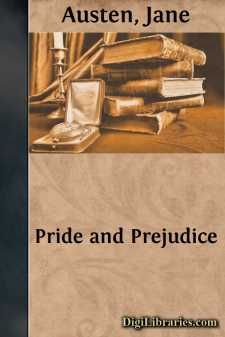Categories
- Antiques & Collectibles 13
- Architecture 36
- Art 48
- Bibles 22
- Biography & Autobiography 813
- Body, Mind & Spirit 142
- Business & Economics 28
- Children's Books 17
- Children's Fiction 14
- Computers 4
- Cooking 94
- Crafts & Hobbies 4
- Drama 346
- Education 46
- Family & Relationships 57
- Fiction 11829
- Games 19
- Gardening 17
- Health & Fitness 34
- History 1377
- House & Home 1
- Humor 147
- Juvenile Fiction 1873
- Juvenile Nonfiction 202
- Language Arts & Disciplines 88
- Law 16
- Literary Collections 686
- Literary Criticism 179
- Mathematics 13
- Medical 41
- Music 40
- Nature 179
- Non-Classifiable 1768
- Performing Arts 7
- Periodicals 1453
- Philosophy 64
- Photography 2
- Poetry 896
- Political Science 203
- Psychology 42
- Reference 154
- Religion 513
- Science 126
- Self-Help 84
- Social Science 81
- Sports & Recreation 34
- Study Aids 3
- Technology & Engineering 59
- Transportation 23
- Travel 463
- True Crime 29
Sort by:
INTRODUCTORY. For many years these chapters had no special interest to me; but I have never ceased to be thankful that I was early led to read the Word of God in regular course: it was through this habit that these chapters first became specially precious to me. I was travelling on a missionary tour in the province of Cheh-kiang, and had to pass the night in a very wicked town. All the inns were...
more...
SELF DEVELOPMENT AND THE WAY TO POWER It is the natural right of every human being to be happy—to escape all the miseries of life. Happiness is the normal condition, as natural as the landscapes and the seasons. It is unnatural to suffer and it is only because of our ignorance that we do suffer. Happiness is the product of wisdom. To attain perfect wisdom, to comprehend fully the purpose of life, to...
more...
PREFACE It seems eminently fitting and proper in this year, the fiftieth anniversary of the Proclamation of Emancipation that the Negro should give pause and look around him at the things which he has done, those which he might have done, and those which he intends to do. We pause, just at the beginning of another half century, taking stock of past achievements, present conditions, future...
more...
CHAPTER I SHEPHERDS ON THE BORDER OF THE DESERT Ancient Arabia is the home of that branch of the white race known as the Semitic. Here on the fertile fringes of well-watered land surrounding the great central desert lived the Phœnicians, the Assyrians, the Babylonians, and the Canaanites who, before the Hebrews, inhabited Palestine. So little intermixing of races has there been that the Arabs of...
more...
by:
Jane Austen
Chapter 1 It is a truth universally acknowledged, that a single man in possession of a good fortune, must be in want of a wife. However little known the feelings or views of such a man may be on his first entering a neighbourhood, this truth is so well fixed in the minds of the surrounding families, that he is considered the rightful property of some one or other of their daughters. "My dear Mr....
more...
THE WITNESS OF THE RESURRECTION‘Declared to be the Son of God with power, ... by the resurrection of the dead.’—ROMANS i. 4 (R. V.).It is a great mistake to treat Paul's writings, and especially this Epistle, as mere theology. They are the transcript of his life's experience. As has been well said, the gospel of Paul is an interpretation of the significance of the life and work of Jesus...
more...
The Hebrew Prophecies In the last chapter the opinion was expressed that the first books collected by Nehemiah, when he made up his "library," a century after the Exile, were the writings of the prophets. We studied the historical books first, because they stand first in the Hebrew Bible, and are there named the "Earlier Prophets;" but the probabilities are that the prophetical writings...
more...
INTRODUCTION We are told every day that great social problems stand before us and demand a solution, and we are assailed by oracles, threats, and warnings in reference to those problems. There is a school of writers who are playing quite a rôle as the heralds of the coming duty and the coming woe. They assume to speak for a large, but vague and undefined, constituency, who set the task, exact a...
more...
CHAPTER I. Why We Believe The Bible. There are two lines of proof of the reliability of the scriptures, the external and the internal. These different kinds of evidences may be put down, without separation, somewhat as follows: 1. The Formation and Unity of the Bible. There are sixty-six books written by nearly forty men, who lived at various times, and yet these books agree in making a perfect whole....
more...











